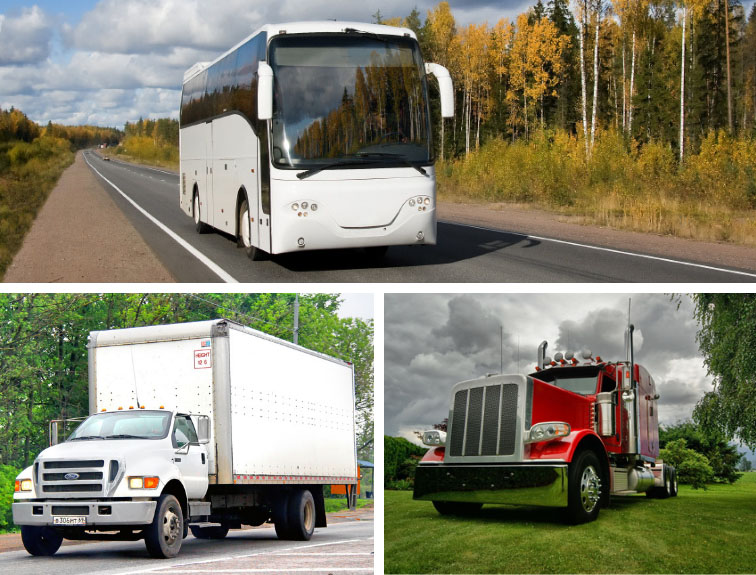Getting started in the professional truck driving industry can be intimidating. There are so many options when it comes to route, schedule, pay, and opportunities. With professional truck driving being a high-demand industry, our students are ready to hit the road to success. At United Truck Driving School, we help our students find the truck driving career that fits their needs, and that starts with asking the right questions. When it comes to speaking to recruiters, they will ask you a lot of questions, but we want to make sure you also ask the questions to make the choice that’s best for you!
What is a truck driver’s lifestyle like?
One of the most important things to understand is what your life will be like when you’re hired by a carrier. There are a variety of route types to choose from. Whether our students are interested in regional, over-the-road, or local, it’s important to find the carrier that fits their needs.
What type of routes would I be taking?
The first question a rookie truck driver should ask a carrier is about their route types. The most common types to consider are over-the-road, regional, and local driving. When looking for a career in professional truck driving, it’s important to know whether you value your time at home or a larger paycheck.
What will home time look like?
Over-the-road drivers tend to spend most of their time away from home, and new truck drivers need to make sure that this is the lifestyle that works for them before joining a carrier. While these jobs are more readily accessible, they’re not for everyone. Drivers with families and children look for local or regional positions so they can be home at the end of the night. Understanding the lifestyle of working for a carrier is key to finding a successful truck driving career.
How much money does a truck driver make?
The next big question to ask is how much money you’ll make. This isn’t just important to employees in the trucking industry, but to every career. Knowing what your qualifications and training can earn you is the first step to entering a career with a trucking company.
How does the pay structure work?
Understanding the pay structure is key when starting a truck driving career. Knowing if you’re entering a salary or hourly position, whether you earn money per mile, or if you’re receiving bonuses. Being aware of your total compensation from a carrier could help you make the right decision for you.
What is the pay scale?
It’s also important to understand a carrier’s pay scale. Knowing what to expect when you become an experienced driver is important to help you make your decision when starting your career. This will set a realistic expectation for you as a long-term employee.
Will I get paid for detention or breakdown time?
One of the questions people tend to forget is regarding detention or breakdown time. What happens if a driver gets stuck at a receiving facility longer than expected? Will the carrier compensate them for that? How does the carrier handle driver pay when they experience a breakdown in the middle of a delivery? These are all important questions to ask when you’re looking for the right carrier to join.
What equipment do your truck drivers use?
Setting your expectation for the type of equipment you’ll be driving is key to understanding the carrier you’re going to work for. It’s important to know if you’re going to be driving newer equipment or if it is older. Generally, newer equipment can mean fewer truck breakdowns and newer technology.
Do your trucks come with amenities?
With newer trucks, the technology that you’re provided is important to consider when interviewing with a recruiter. If you’re traveling over-the-road, do they offer sleepers or even a small fridge for you to store food and drinks in? It’s important to understand what you’ll be driving daily. You should also be familiar with what GPS or logging system they use for their drivers. Being prepared and efficient is a key part of being a successful driver.
Do your truck drivers have opportunities for growth?
What is the training and onboarding like?
No two companies start new employees the same way. It’s important to know what the onboarding process is before starting with a company. There are often procedures that are taught during onboarding that differ from other companies, and understanding what your first few weeks or months with a company will be like is very important. Whether you’re a rookie driver or someone who’s had years of experience, there’s always something different to learn from every onboarding process.
Do you have programs or opportunities for growth?
Alongside getting started with a company, you’ll want to know what growth opportunities there are for you. While some drivers are content behind the wheel, some look for more down the road. It is fairly often that carriers will offer pathways to becoming a trainer for new employees. This allows for an increase in pay for truck drivers who are looking for something more than where they started. Some may also decide to look into owner-operator programs. This would include becoming self-employed and contracting out as a for-hire carrier. Some professionals choose the truck driving career for a variety of reasons. Whether it’s the independence, higher earning potential, or more control over their own work conditions, being an owner-operator comes from experience and dedication to being on the road.
What is it like working here for the other drivers?
Another thing to keep in mind is the work environment itself. Ask questions about employee retention, success, and opportunities. It’s important to know how other employees have experienced the workplace and whether it fits your needs as a professional truck driver. Working for a company that allows its employees to explore different long-term career tracks and values their success is something that many of our students value in a truck driving company.
No matter which path you take, whether it’s local, regional, or OTR, knowing what to expect can make all the difference in your experience. When talking to recruiters, it’s important to ask questions. You want to not only know about what you’ll experience, but also how the company operates and handles changes in everyday life. Asking these important questions is the first step to ensuring a successful career as a professional truck driver. Here at United Truck Driving School, we’re ready to steer you in the right direction.




Recent Comments